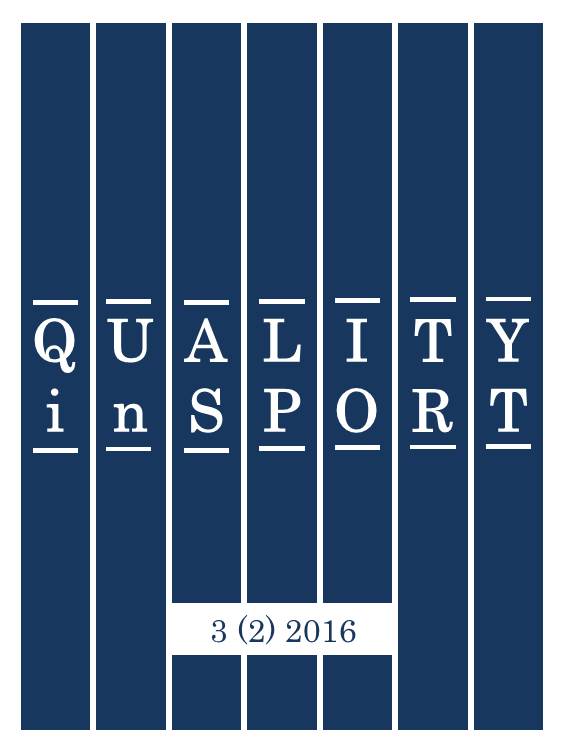Rating preferred predisposition personal trainer
DOI:
https://doi.org/10.12775/QS.2016.018Keywords
personal trainer, personal training, abilities, traits, skills coach, authority, trener personalny, trening personalny, predyspozycje, cechy, kompetencje trenera, autorytetAbstract
Services provided by personal trainers in Poland are becoming more popular. The legal situation of this professional group in Poland is unregulated, which creates many doubts about the competence and suitability personal trainer.
The essence of the work presented in the study is to determine the changes in terms of perception of competence coach, taking place in recent years. The research was conducted in 2009 and repeated in 2015 in fitness clubs coming in Lower Silesia.
The study involved 240 respondents, including 72 women and 168 men.
Research results indicate that over the years, the number of people regularly using the services of a coach nearly doubled. The significant number of people for whom the profession of coaching combined with better and better assessment of the social and his authority continues to grow. 67.5% of respondents think that the coach should be well built and have mixed personality traits.
References
Armstrong M., Zarządzanie zasobami ludzkimi, Oficyna Ekonomiczna ABC, Kraków 2001, s. 245.
Barankiewicz J., Leksykon Wychowania Fizycznego i Sportu Szkolnego. WSiP pod. red. K. Zuchowy, Warszawa 1998, s. 385.
Boyatzis E., The Competent Manager, John Wiley, New York 1982.
Dessler, A, Framework for Human Resources Management, Prentice-Hall, Upper Saddle River, NJ., 2009, s. 362.
Gavin J., Personal trainers’ perceptions of role responsibilities, conflicts, and boundaries. Journal of Ethics and Behavior, 1996, 6, 55-77.
Jabłońska-Wołoszyn M., Kompetencje w organizacji. Jak tworzyć i wykorzystywać modele kompetencyjne w zarządzaniu personelem, „Personel i Zarządzanie” 2003, nr 21, s. 12.
Kocór M., Strzebińska A., Jakich pracowników potrzebują polscy pracodawcy?, PARP, Warszawa 2010, s.12.
Kossowska M., Sołtysińska I., Szkolenia pracowników a rozwój organizacji, Oficyna Ekonomiczna, Kraków 2002, s. 14.
Oleksyn T., Zarządzanie kompetencjami. Teoria i praktyka, Oficyna Ekonomiczna, Kraków 2006, s. 39.
Orlińska-Gondor A., Zarządzanie ludźmi oparte na pojęciu kompetencji, (w:) Nowe tendencje i wyzwania w zarządzaniu personelem, red. L. Zbiegień-Maciąg, Oficyna Ekonomiczna, Kraków 2006, s. 169.
Stiff M.C. The Personal Trainer, Fitness and Sport Review International, 1993.
Whiddett, S. Hollyforde, Modele kompetencyjne w zarządzaniu zasobami ludzkimi, Oficyna Ekonomiczna, Kraków 2003, s. 15.
Downloads
Published
How to Cite
Issue
Section
Stats
Number of views and downloads: 1099
Number of citations: 0



